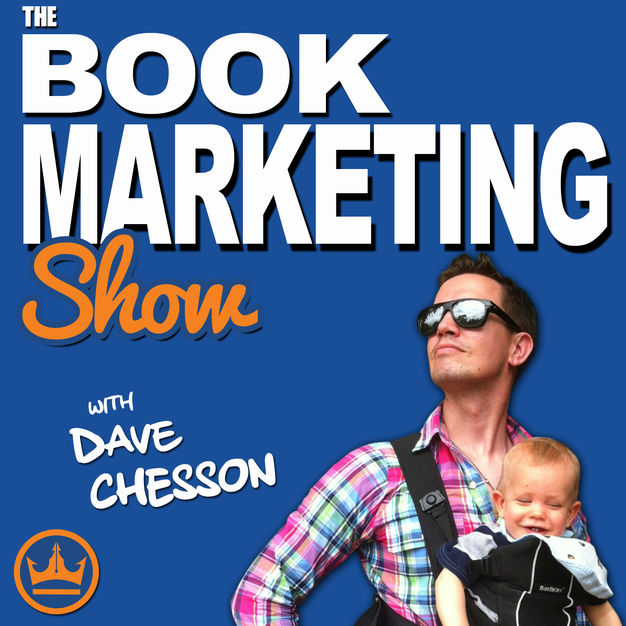
Book Marketing Show Podcast with Dave Chesson
Dave Chesson, Founder of Kindlepreneur and KDP Rocket
Are you ready to increase your book sales, and hit the bestseller list consistently? Welcome to the Book Marketing Show, where in this weekly podcast Dave Chesson will not only show you some of the best book sales tactics but also bring on top-notch guests to show how each tactic taught here was a game changer for their books and how it can be for yours as well. Having created one of the largest websites on book marketing, Kindlepreneur.com, he’s also been a book-marketing consultant for top NYT Bestselling authors in both Fiction and Non-fiction as well as helping big name publishing companies increase their sales. He’s been featured in Forbes, Entrepreneur, and a multitude of book related websites across the net. So, tune in as you learn for free about the art to book marketing and how others are using these tactics to improve their sales and how you can too!
- 23 minutes 42 seconds64: Book Launch to Consistent Sales Case Study
You’ve written your book and the hard work is done, right? Nope! As an author, you’re not just looking to write a book, but you’re hoping to sell that book, too. Our guest today talks about what she did for her launch and how it set her on the path to great book sales, as well as opportunities.
Amy Lyle is an author, comedienne, actor and screenwriter whose book launch kicked off with a party that set her book up for consistent sales and lots of publicity opportunities that followed.
For more information, visit the show notes at https://kindlepreneur.com/e64
19 February 2019, 6:00 am - 26 minutes 40 seconds63. Marketers & Coffee: Publishing Companies and Deals with Anna David
Back in Episode 61, we talked about what it’s like to work with publishers and the differences between legitimate, illegitimate, and vanity presses. But in today’s episode, we talk with an author who has gone the traditional publishing route and self-published. She has also set up her own publishing company.
Anna David became well-known as a freelance writer for magazines and newspapers. When her first novel was picked up, her publisher, unfortunately, ended up in the midst of a scandal, and the book was published under a fake imprint.
Although she received plenty of press, the book did not sell well. This was back in the early 2000s, before everyone, it seems, was on social media. But Anna also realized that unless you are a major celebrity, publishing houses will only do so much for your book.
She found even if the publisher is paying you upfront for the book, you still have to know how to market yourself. She also says it’s important to focus on owning your audience and making sure it’s not an audience you’ll lose should you decide to switch to another publisher or self-publish in the future.
Anna has now become a publisher for others with her friend Kristen McGuiness. She helps new authors establish a writing presence, and she also helps authors with their writing and marketing.
One of the most important lessons to take from this episode is just because you’re able to land a contract with a publishing company, it doesn’t necessarily mean success. Even with traditional publishers, it’s still important you know how to market your book yourself.
For more information about Anna, or any of the resources mentioned, visit the show notes at https://kindlepreneur.com/e63
12 February 2019, 6:00 am - 10 minutes 56 seconds62. Best Writing Tools for Authors
Book writing software. There are a lot of options. In today’s episode, we’ll talk about three of the most common ones: Microsoft Word, Google Docs, and Scrivener.
Microsoft Word is familiar to many and may already be on your computer. Google Docs is free and cloud-based, meaning you can access it from anywhere. Scrivener has the most bells and whistles, though, and is designed with authors in mind. Each one has pros and cons, and depending on your style of writing, you may prefer one over the others.
For more information, visit the show notes at https://kindlepreneur.com/e62
5 February 2019, 6:00 am - 15 minutes 31 seconds61. What Publishing Companies Are Really Like (Insider Story)
As an author and consultant who has worked with a number of book publishers, it’s important for us authors to understand how publishing companies work, what they look for in books, and what authors need to consider before signing anything.
The biggest thing to consider is these companies are looking for books that will sell. There are four main things to take into account when it comes to leveraging your book:
- The subject matter is something the company really cares about.
- Your own sales as a self-published author.
- Your social media following and/or email list.
- How much you stick to the company’s core structure.
There are so many independent book publishers now, you may find it’s easy to find a publisher that is perfect for your genre or book style. You may even find publishing companies that are focused even more on particular niches within that genre. If you’ve already self-published, having good sales numbers is also appealing to publishing companies.
Even if you’re not published yet, you may have already been building an email list or your social media following. Publishing companies are able to see those numbers as absolute sales, and they’ll see you as a good risk to take. I’ve even seen one author leverage different publishing companies against one another to get a six-figure deal.
If you find a publishing company that seems to fit your genre, you may want to look at other books they have published to see their core style. If you’re able to write in that style, you’ll look more appealing to that company.
Before You SignYou may have found what you think to be the perfect publishing company for your book. But before you sign anything, you should be aware of the different ways deals can be structured.
When talking with Jeff Goins, another author, he said when you sign a deal with a publishing company, how much they give you upfront is usually an indication of how much effort they’re going to put into your book marketing. If they put money up front, they have more skin in the game to recoup those costs.
Find out what kind of support you’ll receive from your publishing company. Will there be a marketing team? What kind of marketing are you expected to do?
After a RejectionUnderstand that you may get rejected, as well. J.K. Rowling is known for getting rejected by many publishers until her agent called in a favor and begged a publisher to read the first “Harry Potter” book.
But if you get rejected from one of the major publishing companies, you may be passed along to their vanity press, which is like a subsidiary of the bigger company. You may have to pay to get published through these, plus you’ll have to do a lot of your own marketing. And on top of that, they still get a cut.
Smaller publishers may be able to give you more personalized attention. Be sure to do your research on the ones you find, though. It’s easy enough to create a limited liability corporation, throw up a website, and call yourself a publisher, but find out if they actually have the skill-set to get your book in front of the right market.
Regardless of your decision to sign with a big or small publisher, it’s still important you learn marketing. Gaining a following and an email list is essential, as well. These are tools that will help you sell your own books, as well as pitch your books to publishers.
Resources Referred to in this Episode:- Jeff Goins
- Book Marketing Show Setting Up a Book Publishing Company
29 January 2019, 6:00 am - 30 minutes 34 seconds60. Marketers & Coffee: Facebook Pages for Authors
Facebook can seem like an intimidating place to put yourself out there as an author if you’re not used to it. You may wonder how to navigate between using it for personal reasons versus using it as a marketing arm of your books.
But it can be a powerful tool and, used correctly, can help your readers connect with you more.
Audrey Hughey helps her students in the Author Transformation Alliance use tools like Facebook to help market their books without coming across as too pushy or “salesy.”
She talks about how Facebook pages can be set up separately from our personal profiles and what kind of content works to our advantage when it comes to selling without seeming “salesy.”
For more information, visit the show notes at https://kindlepreneur.com/e60
22 January 2019, 6:00 am - 20 minutes 23 seconds59. How to Get Paid Writing Other People’s Books
When you first start out as a writer, you may be looking to supplement your income. One great way of doing this is to become a ghostwriter. A ghostwriter is an author who is paid to write a book for someone else. It may not seem like it carries the same weight as authoring your own book and seeing your name on the cover, but there are a lot of reasons not to discount ghostwriting.
For one thing, it could bring in enough income for you to be able to quit your 9-to-5 job to focus on becoming an author, like our guest on today’s podcast, Matthew Thrush. Matthew is a six-figure ghostwriter. He went into it with the idea that he liked to write, but quickly realized that he was able to quit his day job to become a ghostwriter for others.
For more information, visit the show notes at https://kindlepreneur.com/e59
15 January 2019, 6:00 am - 33 minutes 59 seconds58. Reviving a Dead Book (Case Study #4)
Writing a book is hard. Sometimes when we find our books aren’t selling well, we may have to make the choice between reviving it or letting it go. In this Reviving a Dead Book case study, we look at an author who decided not to revive his first book, but instead tried reviving his second. Then, he was able to look at both to see the difference a revive can make.
Stuart Thaman wrote his first book in college during NaNoWriMo and it was picked up by a publishing company, but didn’t initially do well. He honed his craft, began writing more, and learning more about marketing. Now he’s considered one of the top book marketers and helps publishing companies with their AMS ads.
For more information, visit the show notes at http://kindlepreneur.com/e58
8 January 2019, 6:00 am - 27 minutes 56 seconds57. How to Make a Children’s Book
Writing a children’s book is not something to go into lightly. Sure, it may sound like less work because they’re typically fewer words, but there are things to think about you may not be prepared for. But if you have ever thought about it, it’s a great market to get into. About 40 million children’s books are sold online every year.
Eevi Jones has written more than a dozen children’s books of her own and uses her knowledge to teach others the skills needed to write, publish and market their own children’s books. The tips she shares in this episode will help you think about the different factors to consider when writing a children’s book, as well as get you started in the right direction.
For more information, visit the show notes at http://kindlepreneur.com/e57
27 November 2018, 6:00 am - 22 minutes 52 seconds56. Using AMS Ads to Increase Your Sales (CASE STUDY)
Michael Knight who went from doing OK with sales of his book to seeing some major changes after taking my free AMS course and using KDP Rocket.
One of the things I talk about in the KDP Rocket course is that you may find keywords to use for your book you may not have immediately thought of before.
Michael is still learning what keywords work best with his book for AMS ads, which he talks about in the episode and gets ideas for even more keywords that may attract his ideal reader to his book.
For more information, visit the show notes at https://kindlepreneur.com/e56
20 November 2018, 6:00 am - 11 minutes 17 seconds55. Book Price Hack that will Make You More Money
If you’re using CreateSpace to create and market your book, you won’t want to miss this ingenious way you can price your book higher, sell it for a lower price, and still get the royalties that come from the higher price. While you may not necessarily use this tactic, I do encourage authors to test different prices for their books anyway to see what works best for them.
Former guest Derek Doepker stumbled upon this hack and talks with me today about how it works and how we can use it ethically. This is within CreateSpace’s terms of service, but when you use this hack, you want to make sure you’re adjusting the price so it make sense for the size of your book and still gives Amazon and Barnes & Noble a profit.
For more information, visit the show notes at https://kindlepreneur.com/e55
13 November 2018, 6:00 am - 10 minutes 26 seconds54. Creatively Smart Ways to Come Up With Your Book Title
One of the most important things you’ll be tasked with as an author is to come up with a title for your book. Many authors think it’ll just come to them. However, after sitting in meetings with publishing companies, I know that doesn’t just happen. Publishers have a process because they know book titles can make all the difference in the sales of that book.
In this solo episode, I talk about using data from the market and how to do research to make sure you come up with a title that grabs the attention of potential readers, how to use similar books as inspiration, and how to test your title.
For more information, visit the show notes at https://kindlepreneur.com/e54
6 November 2018, 6:00 am - More Episodes? Get the App
Your feedback is valuable to us. Should you encounter any bugs, glitches, lack of functionality or other problems, please email us on [email protected] or join Moon.FM Telegram Group where you can talk directly to the dev team who are happy to answer any queries.
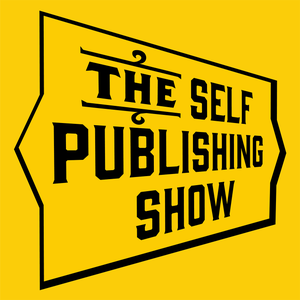 The Self Publishing Show
The Self Publishing Show
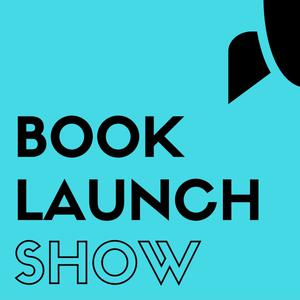 Book Launch Show
Book Launch Show
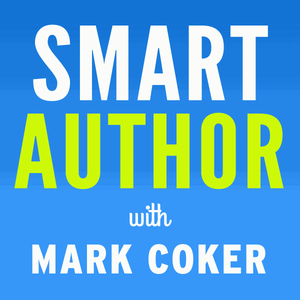 Smart Author
Smart Author
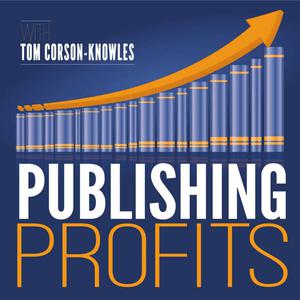 The Publishing Profits Podcast Show | Writing | Marketing | Books | eBooks | Audiobooks | Authors | Entrepreneurs
The Publishing Profits Podcast Show | Writing | Marketing | Books | eBooks | Audiobooks | Authors | Entrepreneurs
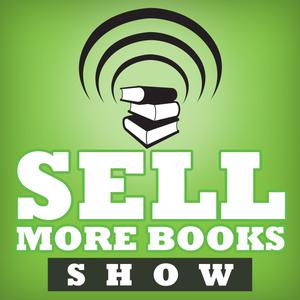 The Sell More Books Show: Book Marketing, Digital Publishing and Kindle News, Tools and Advice
The Sell More Books Show: Book Marketing, Digital Publishing and Kindle News, Tools and Advice